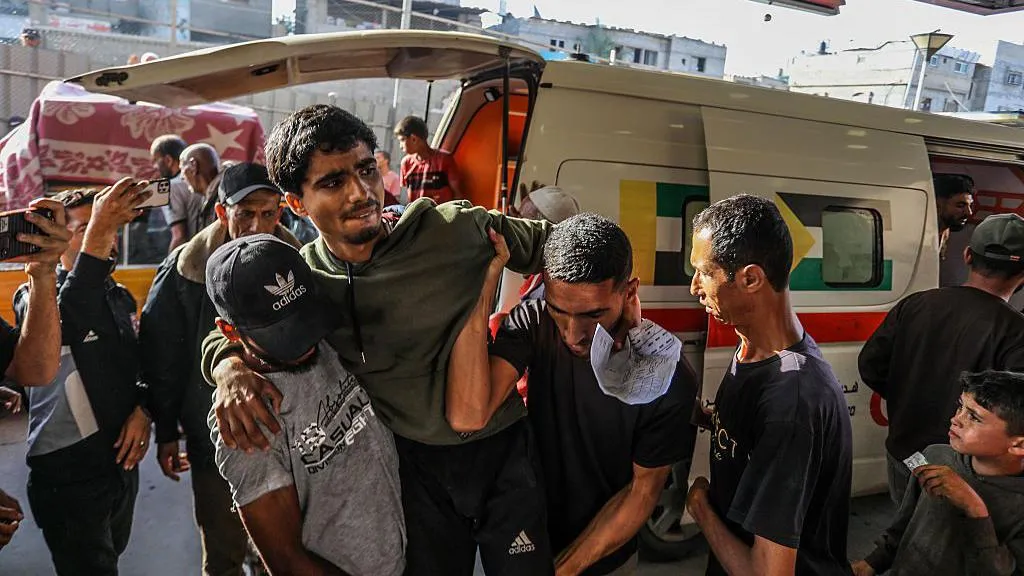The Gaza crisis escalated tragically on June 1, 2025, when Israeli tanks opened fire near a US-backed aid distribution site in Rafah, southern Gaza, killing at least 26 Palestinians and injuring over 80 others. This deadly incident has intensified international alarm over the humanitarian situation and the ongoing conflict in the region.
The attack occurred at a distribution point operated by the Gaza Humanitarian Foundation (GHF), a controversial organization supported by both Israel and the United States. The GHF was established to oversee aid delivery in Gaza with the stated aim of preventing Hamas from diverting supplies, but it has faced widespread criticism from humanitarian groups and the United Nations for lacking impartiality and for being perceived as a tool of Israeli military strategy.
Eyewitnesses described a chaotic scene where Israeli forces opened fire on crowds of Palestinians who had gathered to receive desperately needed food aid. According to one witness, the crowd was about 300 meters away from the military presence when the shooting began. People were reportedly hit by gunfire, drone strikes, and artillery shells as they tried to secure food. One man recounted seeing a father who left to fetch flour for his hungry children but was later brought back on a stretcher after being shot.
The Gaza Health Ministry condemned the attack, describing the aid distribution sites as “Israeli death traps” rather than safe humanitarian zones. Dr. Munir al-Bursh, the ministry’s general director, highlighted the dire conditions in Gaza’s hospitals, which are critically low on medications and supplies due to the ongoing blockade. He accused Israel of deliberately obstructing thousands of trucks carrying medical aid from entering Gaza through Egypt and of exacerbating the humanitarian crisis by spreading infectious diseases through the blockade.
The death toll from this incident marked the deadliest single event linked to the new aid distribution system since its launch last week. Prior to this, two earlier attacks at distribution points had already resulted in nine deaths. Overall, since May 27, nearly 50 Palestinians have been killed and more than 300 injured near these aid centers.
The Israeli military has issued statements denying responsibility for any deaths caused within the humanitarian aid sites, claiming it was unaware of any injuries caused by its forces there and stating that the situation was under investigation. The GHF also denied reports of mass casualties, calling them false information. However, Palestinian authorities and Hamas have held Israel and the US accountable, accusing them of premeditated violence and using humanitarian aid as a weapon of war to manipulate and endanger starving civilians.
This attack took place amid faltering ceasefire talks between Israel and Hamas, with Hamas seeking changes to a US-proposed ceasefire deal. The incident has further complicated diplomatic efforts and intensified global calls for an immediate end to hostilities and unfettered humanitarian access.
The humanitarian situation in Gaza remains catastrophic. Over two million residents are living under a severe blockade that has pushed the enclave to the brink of starvation. Aid deliveries have been minimal and insufficient, with many Palestinians forced to queue in dangerous conditions for meager food parcels that barely meet nutritional needs. The new aid distribution mechanism, intended to prevent Hamas from diverting supplies, has instead been criticized for reducing the number of distribution points drastically—from 400 previously to just four—and for placing civilians in harm’s way.
In conclusion, the deadly Israeli attack near the US-backed aid distribution site in Rafah has underscored the acute vulnerability of Gaza’s civilian population amid ongoing conflict and blockade. It has spotlighted the challenges and controversies surrounding humanitarian aid delivery in the region, the severe shortages faced by Palestinians, and the urgent need for international intervention to protect civilians and ensure safe, impartial aid access.

